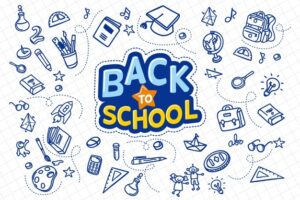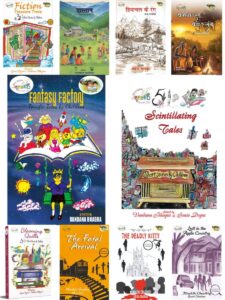 Guidelines aim at fulfilling goal of Inclusive Education
Guidelines aim at fulfilling goal of Inclusive Education
For the first time, an attempt was made to prepare guidelines for CwD also referred to as Children with Special Needs (CWSN) children so that the goal of inclusive education is fulfilled. The Committee submitted a report titled “Guidelines for the Development of e-Content for Children with Disabilities” comprising of eleven Sections and two Appendices. This report was shared, presented, discussed and accepted by the MoE.
The salient highlights of the e- content guidelines in the report are:
- e-Content for CwDs should be developed based on the four principles namely: perceivable, operable, understandable and robust.
- e-Content including text, tables, diagrams, visuals, audios, videos etc. should comply with accessibility standards: national standards (GIGW 2.0) and international standards (WCAG 2.1, E-Pub, DAISY etc).
- Distribution platforms on which content is uploaded (e.g. DIKSHA) and Reading platforms/devices on which content is accessed and interacted (e.g. e-pathshala) must comply with technical standards
- Reasonable pedagogical accommodations have been recommended to meet specific needs of CwDs
- The technical standards and guidelines have been detailed out in Section 4 of the report.
The Committee has also recommended that in a phased manner textbooks may be adapted into Accessible Digital Textbooks (ADTs). The content of ADTs should be provided in multiple formats (text, audio, video, sign language etc) with turn-on and turn-off features. Further ADTs should provide flexibility to CwDs to respond to its content/exercises in multiple ways. The detailed guidelines for developing ADTs along with existing international and national experience, in the development of prototypes including the recent NCERT’s experience: Barkha:A Reading Series for All (in print and digital forms), Accessible Textbooks for All and UNICEF’s “Accessible Digital Textbooks using Universal Design for Learning ( for Learners with and without Disabilities ) have been presented in Section 5 of the report.
- In addition to ADTs, in Sections 6 to 9 the Committee has recommended specific guidelines for development of supplementary e-Content as per 21 disabilities specified in the RPWD Act 2016 for students having Intellectual and Developmental Disabilities, Multiple Disabilities, Autism Spectrum Disorders, Specific Learning Disabilities, Blindness, low vision, Deafness and Hard of Hearing and others.
- A summary of the recommendations has been presented in Section 10 of the report for sharing widely with content creators, content designers, developers, publishers.
- The implementation roadmap along with the suggestions to strengthen compliance to the accessibility guidelines have been presented in Section 11 of the report.
- Comprehensive guidelines and technical standards for the production of Sign Language videos have been provided at Appendix-1 of the Report.
- Universal Design for Learning( UDL)guidelines for content development and pedagogical accommodations are given in Appendix 2 of the report.
These guidelines will initiate the creation of high quality content for digital education toChildrenwith Special needs. They are dynamic by nature, to be improved based on experience and advent of better technology.



